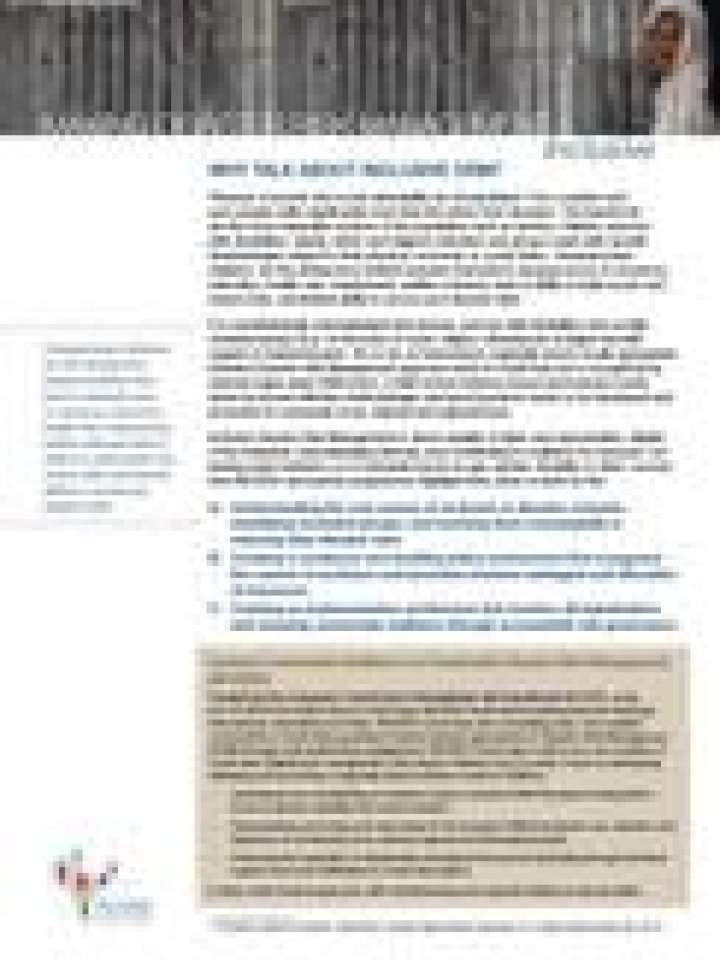Inclusive disaster risk management: briefing paper
This briefing paper argues the case for building safer, more resilient communities in South Asia using evidence-based inclusive approaches to Disaster Risk Management (DRM) through multi-stakeholder engagement. To ensure the inclusion perspective, particularly vis-a-vis gender, disability and socially excluded groups, it calls a focused approach and the framework for inclusive disaster risk management to be an integral part of the post-2015 framework for disaster risk reduction, achieved through: (i) understanding the root causes of exclusion in disaster contexts, identifying excluded groups better, and involving them meaningfully in reducing their disaster risks; (ii) creating a conducive and enabling policy environment that recognises the causes of exclusion and promotes inclusive strategies and allocation of resources; and (iii) creating an implementation architecture that involves all stakeholders and ensuring community resilience through accountable risk governance.
The paper is based on the learning from the Inclusive Community Resilience for Sustainable Disaster Risk Management (INCRISD) South Asia project, currently being implemented in Afghanistan, Bangladesh, India, Nepal, Pakistan and Sri Lanka by ActionAid, Handicap International and Oxfam with support from European Commission Humanitarian Aid Department (ECHO), under the 7th DIPECHO Action Plan for South Asia. While this paper is based on South Asia experiences, recommendations and approaches are meant to have a universal application.
Explore further
